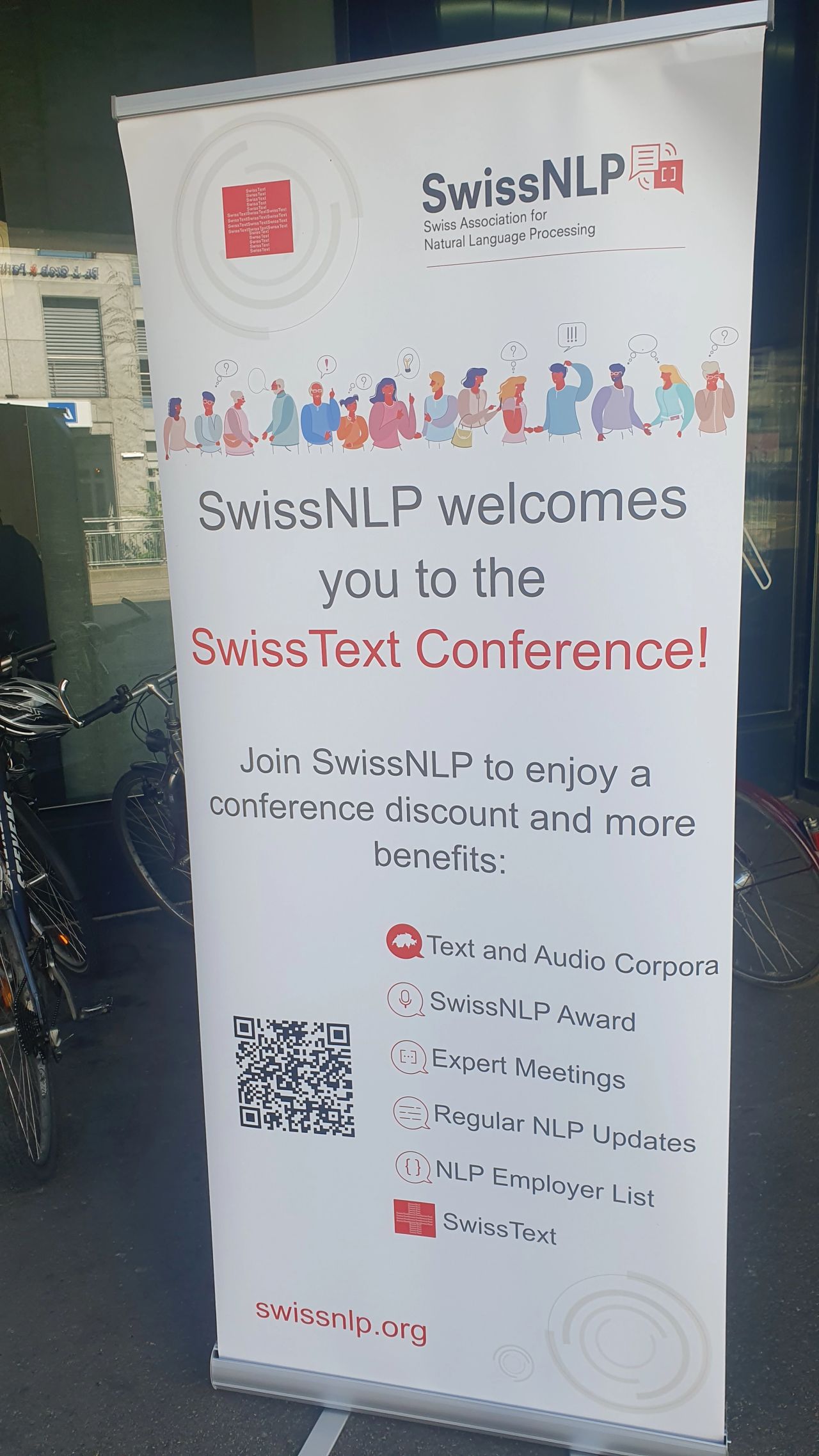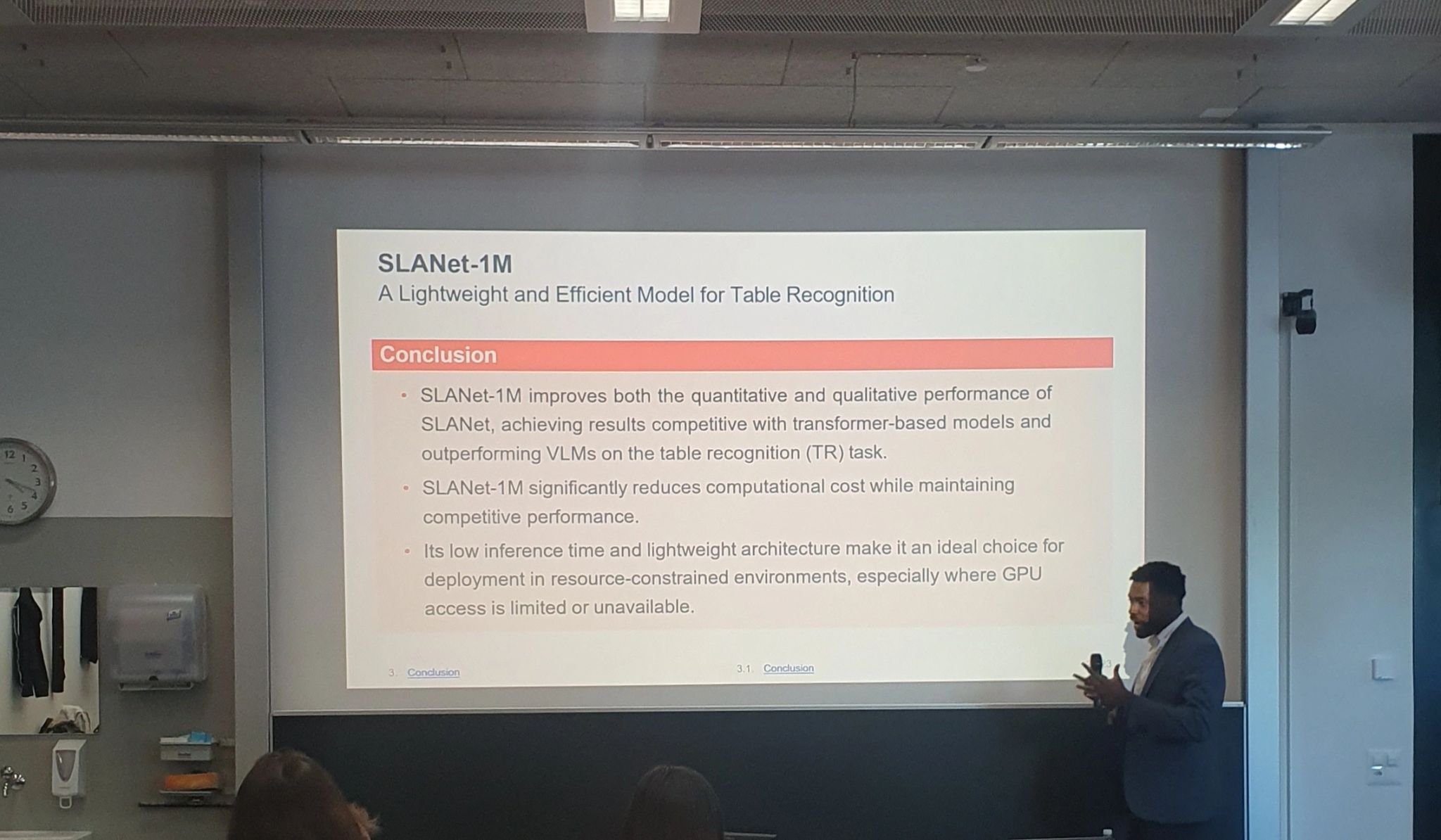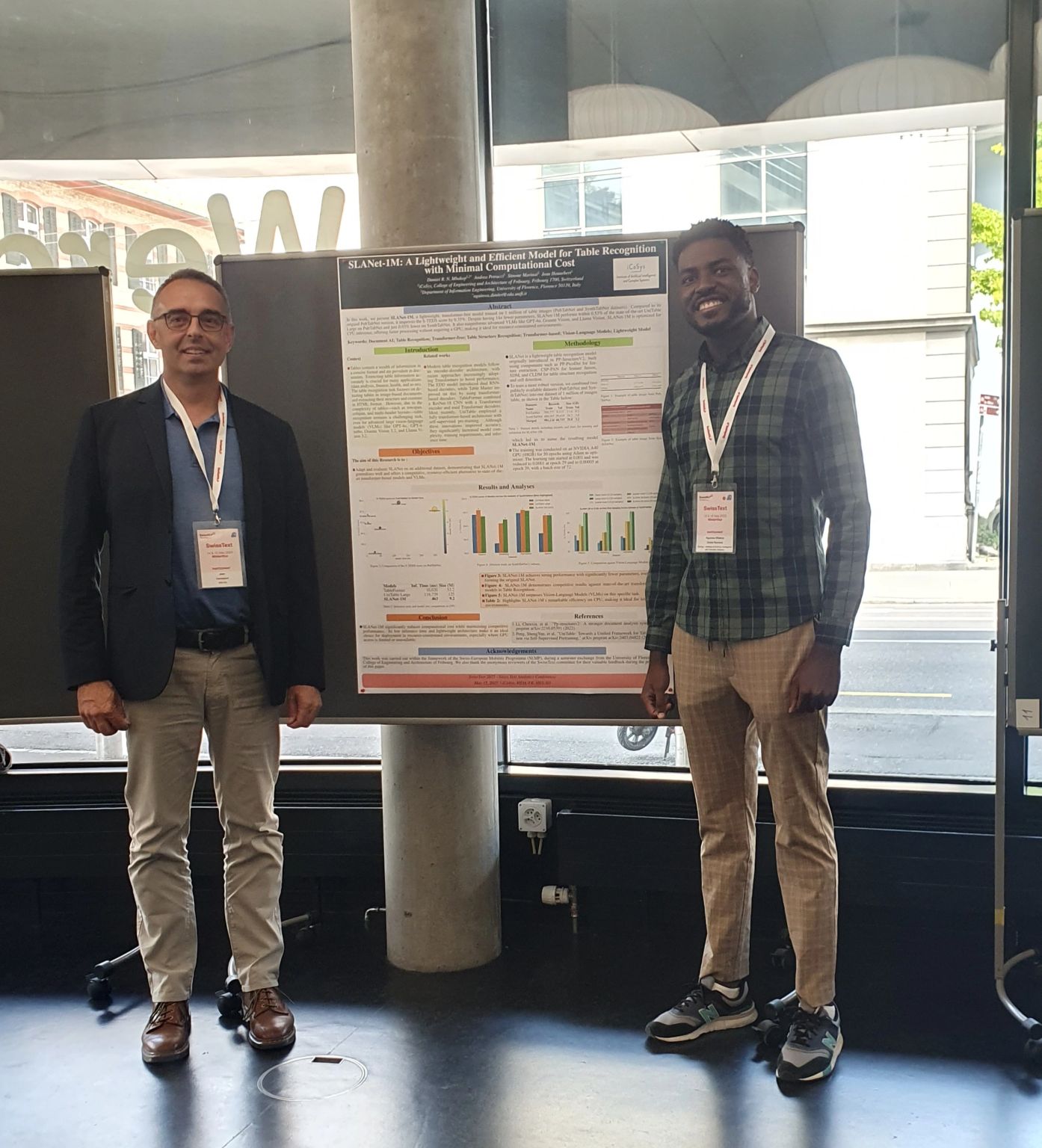The Institute of Artificial Intelligence and Complex Systems (iCoSys) at the School of Engineering and Architecture of Fribourg (HEIA-FR, HES-SO) proudly highlights the exceptional achievements of model SLANet-1M, developed by Dimitri Mbakop Nguinwa, showcased at the prestigious SwissText 2025 conference in Winterthur.
Realized during an academic exchange semester from the University of Florence and carried out within the dynamic research environment of iCoSys, Dimitri’s project led to the development of SLANet-1M, a state-of-the-art, lightweight, and transformer-free deep learning model for table recognition. His work was co-supervised by Prof. Jean Hennebert and Andrea Petrucci (iCoSys), in close collaboration with Prof. Simone Marinai (University of Florence).
At the heart of SLANet-1M lies a clear ambition: to deliver high-performance table recognition without the burden of high computational cost. Trained on an unprecedented dataset of one million table images—aggregated from PubTabNet and SynthTabNet—SLANet-1M achieves remarkable results. It nearly matches or outperforms complex transformer-based and vision-language models such as UniTable Large, GPT-4o, and Granite Vision, all while being 14 times lighter and optimized for CPU execution.
The model demonstrated exceptional performance across diverse datasets, including a standout S-TEDS score of 99.36% on SynthTabNet, placing it just 0.03% below the best transformer-based models—an outstanding achievement for a transformer-free architecture. SLANet-1M also shines in terms of real-world applicability, with inference times under 500 milliseconds on standard CPUs, positioning it as a viable solution for deployment in low-resource environments.
Dimitri’s work exemplifies the spirit of iCoSys: innovation, efficiency, and a commitment to democratizing artificial intelligence. We are proud at iCoSys to have supported a project that not only advances the field of document understanding but also contributes to accessible and sustainable AI.
This project was conducted within the framework of the Swiss-European Mobility Programme (SEMP) and supported by a grant from the Swiss AI Center (135788/IA-RECHERCHE24-11). The SLANet-1M model is now integrated into the Swiss AI Center’s core engine and available for public testing here.
We extend our warm congratulations to Dimitri for this outstanding contribution and look forward to future innovations stemming from this promising line of research.
— The iCoSys Research Team, HEIA-FR



